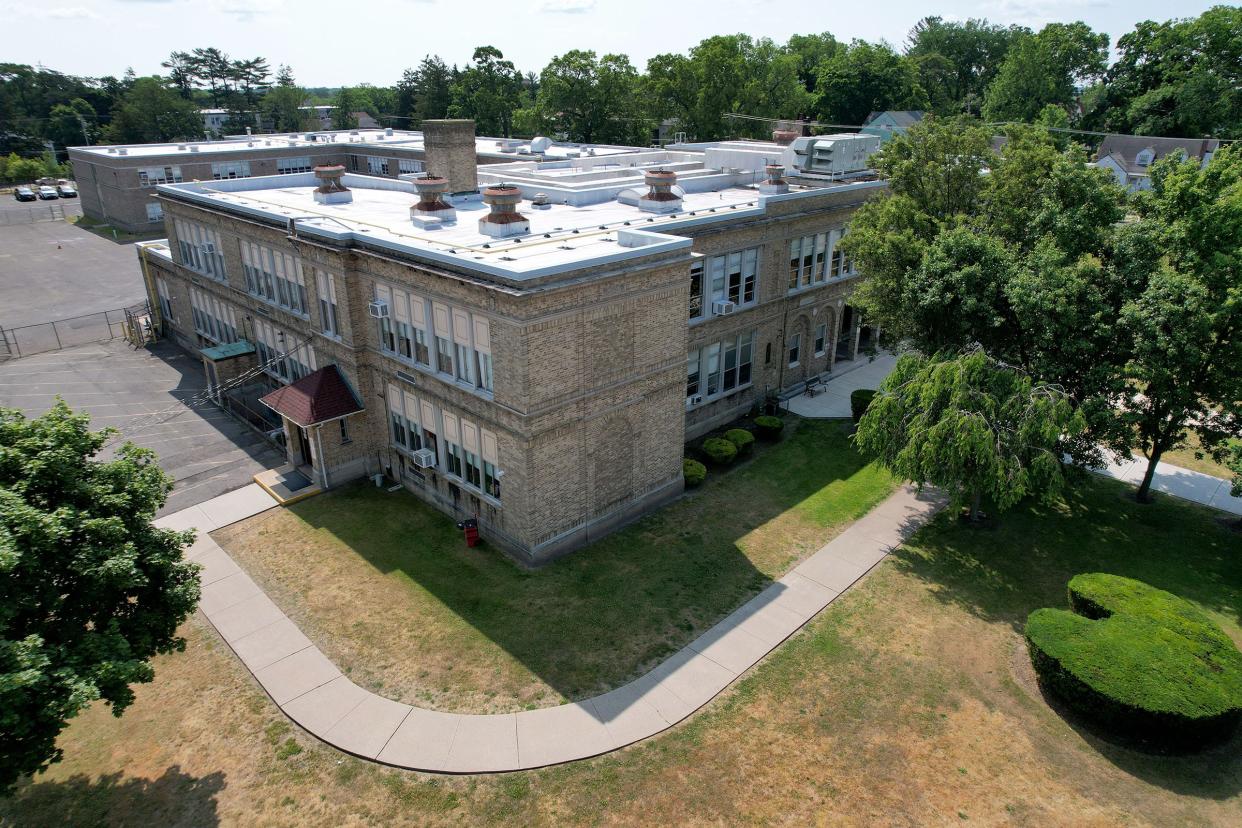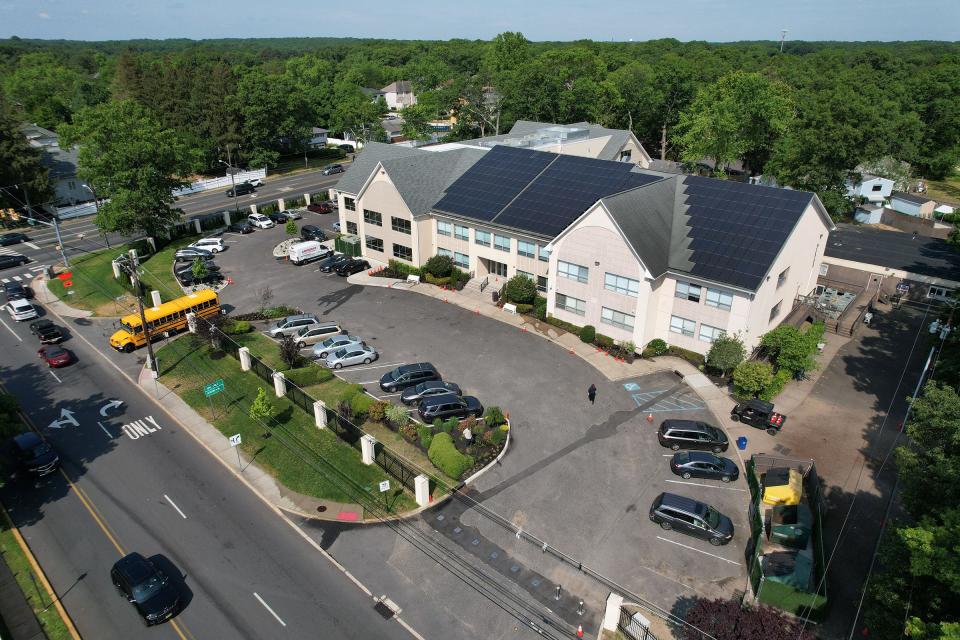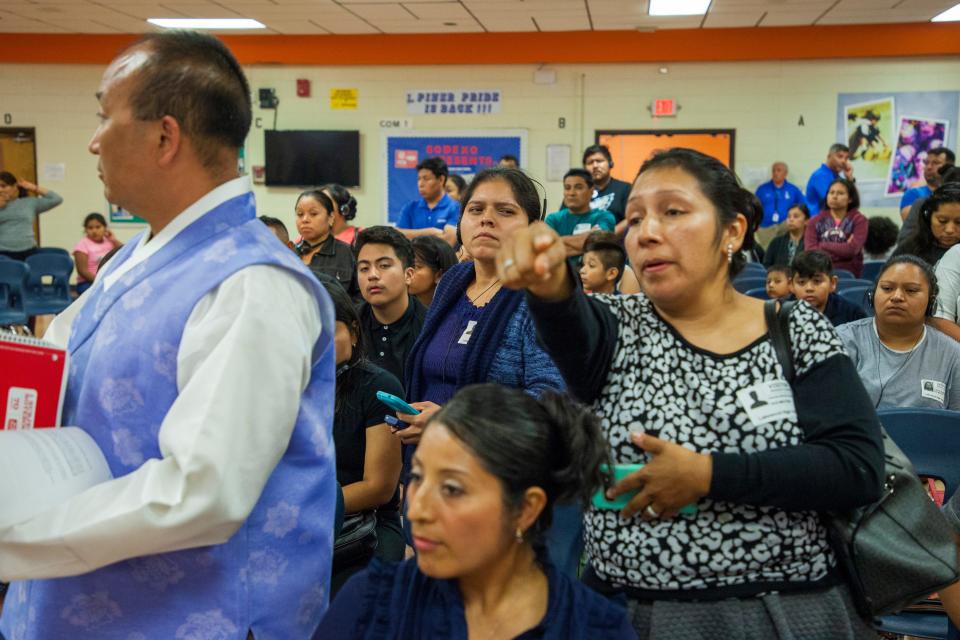Lakewood Schools borrow more money from New Jersey than any other district

LAKEWOOD — As the Lakewood School District continues adding to its mounting state loan debt — requesting another $93 million from Trenton this year — a review of state records finds that no other district has come close to Lakewood’s level of borrowing.
In fact, just half a dozen other districts have received loans from the Department of Education in recent years, with none remotely approaching Lakewood’s $123 million tab. That outstanding bill will skyrocket to $198 million if Lakewood’s current loan request is approved.
“It is just throwing fuel on the fire,” David Sciarra, former executive director of the New Jersey Education Law Center, said about Lakewood Schools’ state loan debt. “It is creating a deeper hole that they will never get out of, they will never be able to repay it.”
MORE: Lakewood schools borrowed millions from New Jersey and still can't pay its bills
The next highest state loan to a school district is $4.8 million, borrowed by Lyndhurst Schools in 2019.
Lakewood’s rising loan debt is the result of an ongoing budget deficit that many in and out of the district blame on inadequate state funding.
They point to Lakewood’s unique situation as a district with more than 5,164 students, but a responsibility for another 42,307 private school students who must be transported by the district at a cost of about $24 million per year under state law.
“It makes no sense at all to do this for Lakewood,” Sciarra said. “For the commissioner to (continue loaning the district money) is absurd. The primary problem in Lakewood is the existing funding formula in its current format can’t provide Lakewood the funding it needs to deal with its unique circumstances.”
Lakewood's state funding has been the subject of a 9-year-old legal battle between the Department of Education and attorney Arthur Lang, a Lakewood High School teacher, and co-counsel Paul Tractenberg, a former Rutgers law professor and founder of the Education Law Center.
In March, a state appeals court ruling found Lakewood public schools do not receive adequate state funding to meet their needs. The appeals court declared that the district is “severely strained” by its obligation to provide transportation and special education to thousands of non-public school students.
Their complaint challenged the state’s funding of the 5,000-student district, claiming the district’s legal obligation to provide transportation and other services to more than 42,000 nonpublic school students required more state aid.
In the decision handed down March 6, the three-person appellate court declared that Acting State Education Commissioner Angelica Allen-McMillan must review the district’s situation and come up with a way to improve its funding. She has launched a review of the district finances in response.
NJ Auditor: Lakewood schools deserve special 'state aid' to address finances
Lakewood began borrowing money in 2014, when it requested $4.5 million from the state. Since then, there has been no end in sight, with the district’s requests compounding year after year, as they try to cover school costs and the mounting debt repayment.
The other Garden State districts that have borrowed from the state include:
Lyndhurst in Bergen County district, which borrowed $4.8 million in 2019, has so far paid back $1.9 million;
Hi-Nella Schools in Camden County, which borrowed $4.3 million since 2016 and have repaid $2.3 million;
Belleville Schools in Essex County, which borrowed $4.1 million in 2015 and has repaid $3.3 million;
Ridgefield Park Schools in Bergen County, which borrowed $2.5 million in 2016 and has repaid $2 million;
Edgewater Schools in Bergen County, which borrowed $1.8 million in 2020 and has repaid it as of 2023.
Woodbine Schools in Cape May County, which borrowed $715,000 since 2016 and has repaid it all.
In most cases, school districts facing a deficit or bottom-line problem will either raise taxes and other revenue, cut spending, or, more often, institute a combination of both, experts said.
For schools to seek a state loan, the situation must be dire or without other options.
“It is very unusual,” said Richard Bozza, executive director of the New Jersey Association of School Administrators and former superintendent in Montville and Berkeley Heights. “In most cases there are larger issues. The (2% state) cap on (school) taxes is a significant one and they are not permitted to raise the taxes enough. They do make cuts, but the question is how far can they cut?”

MORE: Lakewood Schools deserve more state funding for busing students, appeals court rules
Department of Education loans are not an easy option, according to state law, which requires that districts applying for a loan prove it is necessary for the district to provide a “thorough and efficient” education. Loans also must be paid back within 10 years.
The state commissioner of education and the state treasurer must approve the loan and the district must agree to hire a state monitor, and pay their salary, until the loan is repaid.
“Districts often find themselves surprised by a financial need they didn’t anticipate, it is a loan that needs to be paid back and it causes consternation in the districts where it occurs, you have to look at management practices,” Bozza said. “You have to be in a position to pay your bills. If you find that your resources don’t allow you to do that you have a significant problem. Districts found themselves where they find a surprise and they go to the state for assistance.”
The pending loan of $93 million will be added to their current debt of $123 million in state aid loans dating back to the 2014-15 school year when it first borrowed $4.5 million. The district also borrowed $5.6 million in 2016-17; $8.5 million in 2017-18; $28.1 million in 2018-19; $36 million in 2019-20; $54.5 million in 2020-2021; and $24 million in 2022-23.
State officials offered few explanations for why they allow such massive debt by the district at time when it is seeing reduced state aid and a population that includes mostly low-income residents.
Lakewood’s Republican state legislators, Sen. Robert Singer and Assembly members Sean T. Kean and Edward H. Thomson, did not respond to repeated requests for comment.
Laura Fredrick, communications director for the New Jersey Department of Education, declined to comment on Lakewood specifically, saying only each case is different.

MORE: Lakewood Schools tighten scrutiny of school bus companies
“Any loans a district has taken out should not be considered solely reflective of that district’s situation,” she said via email. “A school district requests a state aid advance based on its current fiscal situation and needs. The New Jersey Department of Education (Department) uses available data (e.g., the most recent district data available and available resources such as surplus and reserve accounts) to assess the need for a loan. Funds flow from Treasury to the specific district’s bank account via electronic payment.”
In each case outside of Lakewood, the district that borrowed money faced either mismanagement, a surprise financial issue or some other one-time fiscal oddity.
Belleville, for example, found itself $3.7 million in debt in 2014 due to high legal fees, over-billing by school district tutors and other oversight issues later revealed in a 2018 audit.
“It was due to hiring and mismanagement,” said Matthew Paladino, Belleville business administrator since 2017. “When you close your fiscal year in a budget deficit and you don’t have enough resources in surplus to cover the deficit, you have to petition to the state for a loan to make you whole, it is the only thing you can do.”
MORE: Parking concerns delay vote on Lakewood school complex
Ridgefield Park received its $2.5 million loan after overspending its $35-million budget in 2016 by that same amount, prompting an audit and the appointment of a fiscal monitor.
In Edgewater, a $1.8 million state loan was granted in 2020 after an audit revealed a budget shortfall of that amount had been undetected until the middle of the school year.
Lyndhurst, which took the biggest recent loan of any district outside of Lakewood, borrowed $4.8 million in 2019 after the district revealed an unexpected $5 million deficit.
Woodbine, meanwhile, received loans totaling $715,000 in 2014 and 2016 for deficits resulting from mismanagement that a 2016 audit revealed stemmed from “significant financial and administrative errors.”
For Lakewood, the waiting continues. As of press time, the state had yet to approve or reject the request for the $93 million loan.
Joe Strupp is an award-winning journalist with 30 years’ experience who covers education and several local communities for APP.com and the Asbury Park Press. He is also the author of three books, including Killing Journalism on the state of the news media, and an adjunct media professor at Rutgers University and Fairleigh Dickinson University. Reach him at jstrupp@gannettnj.com and at 732-413-3840. Follow him on Twitter at @joestrupp
This article originally appeared on Asbury Park Press: State offers few reasons for allowing Lakewood NJ schools debt to rise

